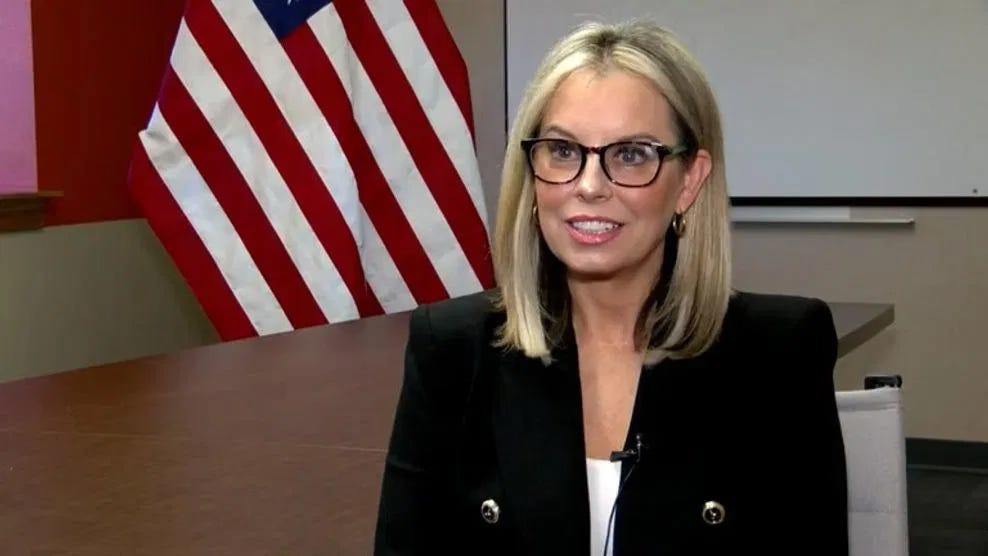Now is the time for our government to start utilizing emerging technology
Blockchain technology's role in beating mental illness and addiction. This edition of Some Future Day features Reno's Mayor, Hillary Schieve.
We can disrupt the gridlock surrounding distribution of federal funding to our deserving citizens by unlocking the power of blockchain technology and smart contracts.
It’s time for our elected officials to take charge, learn, and apply technology’s benefits across society. Rarely do we hear that our leaders are exploiting innovation for the greater good. These days, far too much attention is paid to regulating new tech.
Hillary Schieve is the only person I know who has unfortunately experienced the loss of a sister, brother, and brother-in-law within a 4-month period, all due to the destructive grip of mental illness and addiction.
Who is Hillary Schieve?
Reno Nevada’s Mayor, Hillary Schieve, is an Independent known for embracing technology to solve problems. During the pandemic, Mayor Schieve provided at-home therapy sessions for Reno’s residents with Talkspace, a cutting-edge digital platform. Formed with federal funding, the program was well received; forty-eight percent of participants reported the experience as their first-time trying therapy.
Mayor Schieve recently met with the Biden Administration and members of Congress, including U.S. Senate Majority Leader Charles Schumer. Ms. Schieve’s goal - to overhaul the long-drawn-out process of distributing federal funds to states, ultimately reaching our city’s coffers, and in turn those in need - “we the people”.
As President of the U.S. Conference of Mayors, Ms. Schieve argues that people will receive better care to treat mental illness and addiction if federal funds can move directly to cities, bypassing the states. Typically, city leaders distribute funds to treatment organizations, after receiving monies from the states. Substantively, Ms. Schieve’s end-goal is to deliver the resources required to save lives. Procedurally, Mayor Schieve aims to overhaul the bureaucratic, snail-paced funding route which often results in peril and death.
The circuitous flow of financial resources can be dizzying; monies doled out to our cities via the federal government typically originate at the local level. So much can be unpacked surrounding the notion that monies collected from a person in Scarsdale, New York are redistributed up through the federal government, only to flow back down to help those in Manhattan, New York. But I digress.
As a New Yorker, it’s easy to see that mental health and addiction cases are prevalent. According to NYC’s Mayor’s Office of Community Mental Health, twenty percent of New Yorkers now experience mental illness, and “hundreds of thousands of these New Yorkers are not connected to care”. For perspective, twenty percent of New York City’s residents equals nearly the entire population of Manhattan.
But New York is just a snapshot of our nation’s “new mental normal”, and alarmingly, our leaders don’t know how to manage this important issue. Here are key takeaways from this year’s United States Conference of Mayors Report, The Mental Health Crisis in America’s Cities and Their Responses to It:
97% - Requests for mental health services increased in their city.
88% - Do not have adequate access to the mental health resources.
85% - Substance abuse is the main cause of the increased need for services.
89% - Depression is the primary mental health problem exhibited by young people.
Enter: Smart Contracts
So how can smart contracts and blockchain technology fix this outdated process?
Smart contracts can be programmed to immediately transfer funds to the organizations on the frontline fighting mental illness and addiction. Thus, eliminating the bureaucratic logjam involved with every governmental entity, up and down the line, collecting and disbursing monies. (Smart contracts are digital contracts stored on a blockchain that are automatically executed when predetermined terms and conditions are met.)
But why haven’t government officials already leveraged new technology-based solutions available to combat mental illness and addiction? Presumably, their heads are elsewhere. Or perhaps they aren’t aware of what’s happening on the ground in their region.
Mayor Schieve noted that her meeting with New York’s Senator Charles Schumer “… was very quick” and suggested we should “start asking the tough questions” including whether elected officials spend too much time in Washington DC and “forget to breathe the air they represent”.
My discussion with Mayor Hillary Schieve is expansive and includes stories about her recent incident with a stalker, why she received an organ donation, and Reno’s “Biggest Little Blockchain”.
Watch The Complete Interview: Some Future Day Episode One







